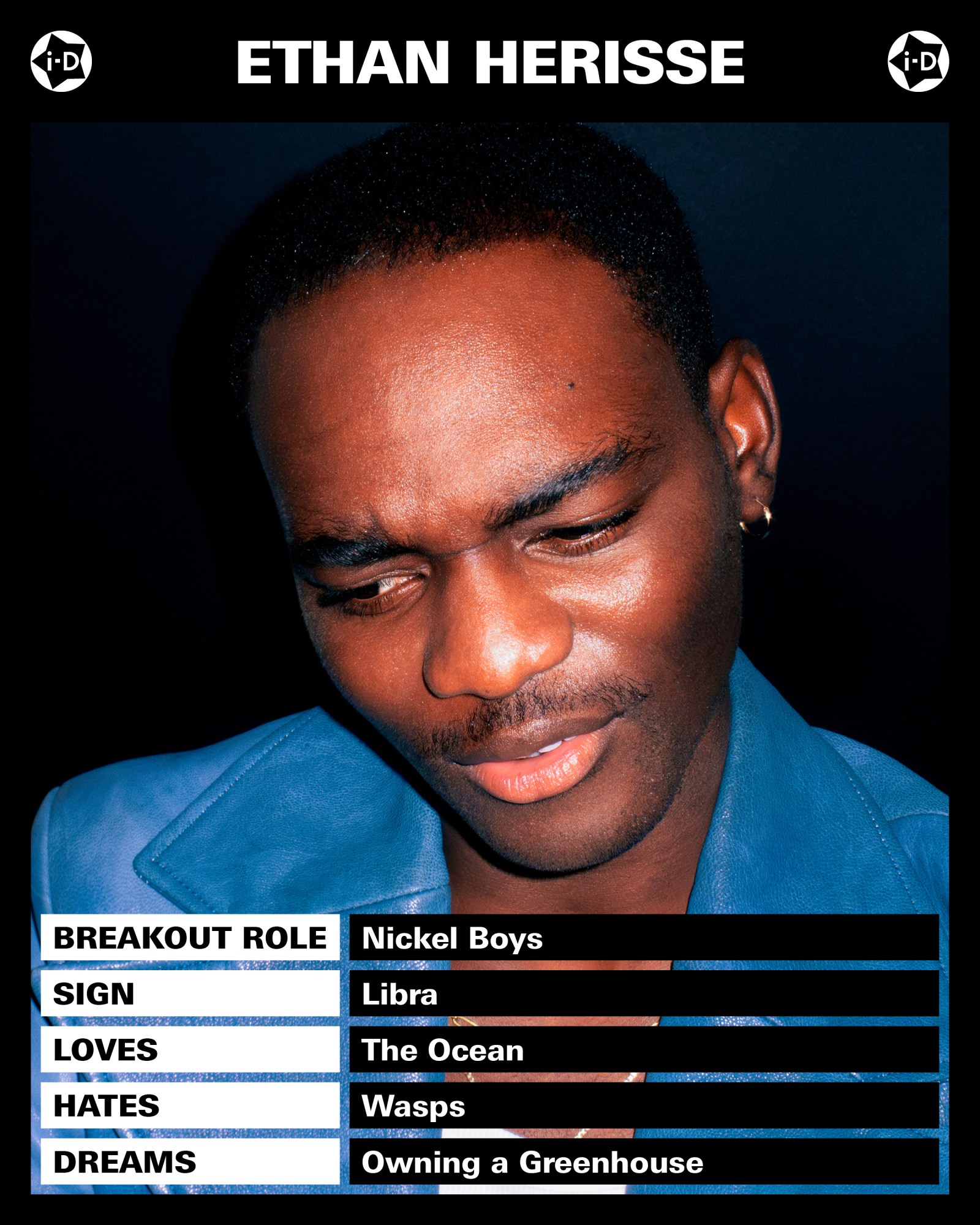It’s strange to talk to an actor about a film in which he spent as much time behind the camera as he did in front of it. But in late 2022 in Louisiana, that’s what Ethan Herisse, the lead star of Nickel Boys, did.
Though its subject matter is severe, the actor, 24, revelled in the strangeness of the shooting experience. Today, he uses a particular word, looking back upon that off-kilter experience: “play.” Nickel Boys, directed by RaMell Ross, is an experimental take on the Pulitzer Prize-winning novel of the same name; a film that uses a first-person point of view to explore the perspectives of two Black teenage boys, Elwood (Herisse) and Turner (Brandon Wilson), who meet at a “reform school” plagued with violence in Tallahassee, Florida.
When it came to filming, “RaMell was very intentional about giving us freedom and trust,” Herisse says. It was a new experience for both the director and his cast: the camera was positioned over each actor’s shoulder; and their scene partner would make eye contact not with their fellow performer, but with the camera lens.
Herisse refers to auditions and sets as “playgrounds” – something dynamic and open, an attitude he links to the moment he realised he loved performance, while appearing in a high school production of Hairspray. “When you’re up there, you go to this space that exists outside of the real world and there’s so much joy in it,” he says. When Hairspray finished, he remembers mourning it: “I was like, deeply upset,” he recalls. “I was like, ‘I don’t get to do this any more? It was only for a weekend?’”
“Acting is like a dance”
Born in Miami, Florida to Haitian parents, Herisse spent his early childhood in Massachusetts, surrounded by his extended family. He associates his love of performance with them. “My grandpa plays piano and guitar, he would sing to me and my sister growing up,” he says. “That love for music and the arts, that seed was planted by my dad’s side [of the family].” His dad, he says, is a talented dancer. “Growing up, he would ballroom dance with my mom all the time, like he could move. Even though it’s not something that he pursued, it’s with him.”
Herisse credits his appreciation of physical performance to those Saturdays spent in ballrooms – but he didn’t naturally gravitate towards dance himself. “I thought I was going to be a basketball player,” he remarks. It was only after he helped out his younger sister, a once-pageant girl, at an acting class she’d been recommended to attend, that he decided to sign up himself. “I just went with her one day, I think my parents just wanted me to make sure she was doing okay and I said ’Yeah fine, I don’t care.’” Evidently, the craft got its claws into him. “Fast forward and I went to a showcase thing in LA, and in 2012 my parents were asking me, ‘Is this something you wanna do?’”
His family continued to stoke that flame: they uprooted their lives in Massachusetts and moved to the West Coast to give Herisse a shot at acting. He says that doing show choir and performing on stage (like the aforementioned Hairspray) transformed it from a pastime into a potential livelihood. Taking on smaller roles while he was in high school, Herisse made his big break right after graduating as Yusef Salaam, one of the exonerated Central Park Five in Ava DuVernay’s When They See Us. Both When They See Us and Nickel Boys concern false imprisonment and the full weight of American political power driving oppression. Herisse considered that there’s still a sort of liberation in exploring people’s lives this way.
“No matter what the material is, even if it’s difficult, once you are in a scene you’re [discovering] things as you go along,” he says. “It’s all like a dance, regardless of what it is. I think you can still find play in that.”
Photography: Jackson Bowley
Writer: Kambole Campbell
